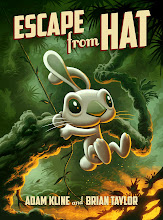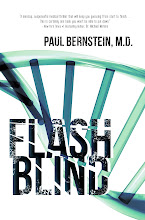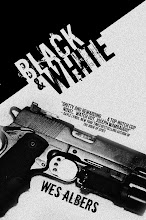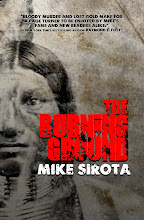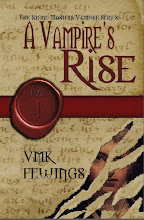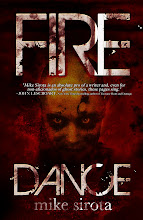IT WAS DECEMBER 12, 1973. I remember because it was my fiftieth birthday, and Christmas was coming, so the snow was to be expected. In this area of northern California, we rarely saw anything but a white Christmas. Chilcoot was nestled high up in the Sierra Nevada Mountains. A small rectangular green sign was the only evidence that the small town actually existed: Chilcoot, California, Elevation 5000 ft, Population 58. A distracted driver could easily pass through the two-mile stretch of road that touched its borders without realizing he’d seen it.
We were on our way into the city, the closest to our house being over an hour away, and Daddy was grinning ear to ear as he drove his new forest green Cadillac Coupe de Ville into the oncoming flurries. He loved that car.
“Now, make sure the tree is sturdy, Elyse, and nice and tall,” Daddy said.
“I know, Dad. I think I’ve picked enough trees in my life to know a good one. Besides, you never let me choose it anyway,” I mumbled under my breath. I saw my mother’s cheeks lift into a smile. She must have heard me, and she knew it was the truth. We’d had this birthday tradition for the last twenty years. I was supposed to be the one to pick out the Christmas tree, but my choices hardly ever passed Daddy’s final inspection.
“Don’t you like this one?” he’d ask. “Yours is a little thin on the bottom. This one’s much better, right?”
“Right,” I would mutter mechanically.
“See, Sarah, she’s a good sport, knows a good one when she sees it.”
My mother never argued. He was too much of a perfectionist to let anyone else handle those sorts of things. It was kind of funny really, one of his little eccentricities that I overlooked in my youth.
It was two o’clock in the afternoon, but the day was dim. The sun had been swallowed up by the all-consuming white. I was gazing out the back window as it happened, trying to judge the visibility through the whiteout. I couldn’t see far, just beyond the edge of the fence that ran alongside the road.
“Richard, slow down!” my mother shouted. The words triggered the incident like she had seen it coming. The car drifted into the next lane, and I felt the loss of control as the paved road became slick ice. My body stiffened in response to the awkward gliding sensation, and I braced myself for the impact. Every second of the slow motion tumble seemed an eternity as I prepared for the last moments of life. I clung to those seconds, taking in the final images that my eyes would see, and listening for the closing lines that would mark the end.
“Ellie!”
My mother’s panicked voice rang out in the hollow silence of the cab with a sort of knowing uncertainty just before we hit.
***
It had been thirty-nine years since the accident, and still thesephotos stirred up the last memory I had of them. I stared down at the faded pictures, the delicate paper worn on the edges. I would never forget. The last words of my parents, the flickering image of a deep red that stained the snow like an open wound on the skin of the earth, and the crumpled Cadillac flipped over in the bank.
The photos were old, too old for me to be in them, but I was. My mother’s silky brown hair billowed over her shoulders, and I was glad I still remembered the toasted almond color of it because the gray and white image didn’t do it justice. The lack of color masked her would-be sky blue eyes and rosy cheeks. She was gorgeous. My father, to her left, was looking far too concentrated on the camera, furrowed brow and closed mouth. His skin, dark from working in the sun, nicely contrasted his short blond hair which he wore parted and combed to the side. I was at his feet, and we were posing in front of the tree like a typical storybook family. It was the Christmas of 1939. I looked three years old, but in truth, I was much older.
I was born in 1923 with a rare genetic abnormality. Like my mother and father, I aged five times slower than the average person. I’d been alive for eighty-nine years making me almost eighteen in the eyes of the rest of the world, and for the most part I felt young. I was living in San Francisco now. I found the city much easier to hide in than the small towns I had been moving to every five years or so since their death. In the city, I was just another face, another body in the crowd, completely invisible amongst the masses.
“We’ve gone to great lengths to live as we do, Ellie. It’s for your safety,” my father had always insisted. “Our bodies are durable and strong, but that’s a blessing and a curse. The secrecy of our identities is precious, and there is no telling what could happen if we were to be found out. People like us could not live a normal life if we were exposed.”
It was all I ever learned about myself and why I was so different, why I had to live in secret. Looking back, there was so much more I wanted to know, so many unanswered questions. What about my grandparents? What about my future? Was I destined to be alone? How did my parents find each other? Were there others? My father never went into detail. Instead, he avoided my questions, always suggesting a distraction that would divert my attention for a while.
“In time you’ll learn to live under the radar as we’ve done. For now, why don’t we get you a puppy?”
They bought me a Border Collie. She was black with white spots and white feet. I named her Sweetie, and I loved her like I had never loved anything. She went with me everywhere, and in my friendless world, Sweetie became the best friend I’d ever had. The attachment we’d formed seemed unbreakable, but as nature would have it, Sweetie died when I was nine. On that day, I fully understood why my parents had not wanted me to have friends—friends who I would love, who would age, and leave, and die.
The phone rang loud and unexpected, waking me out of my nostalgia. I returned the old photos to the small gold chest I kept them in and stumbled over unpacked boxes trying to get to the receiver. I had just moved in about two weeks ago, and the naked living room still void of furniture was a scattered mess. I picked up on the third ring, still lost a little in my own head.
“Hello?” I answered, expecting the only person who had my number.
“Ellie?”
“Hey,” I said, happy to hear from her. “I know I haven’t called. Sorry.”
I caught my reflection in the hallway mirror, still so young. My light brown hair was tied back in a loose ponytail, my cheeks wrinkle-free and rosy. I felt guilty listening to Anna’s older voice. Over the years, she’d become a woman of forty- eight, and I’d barely changed.






